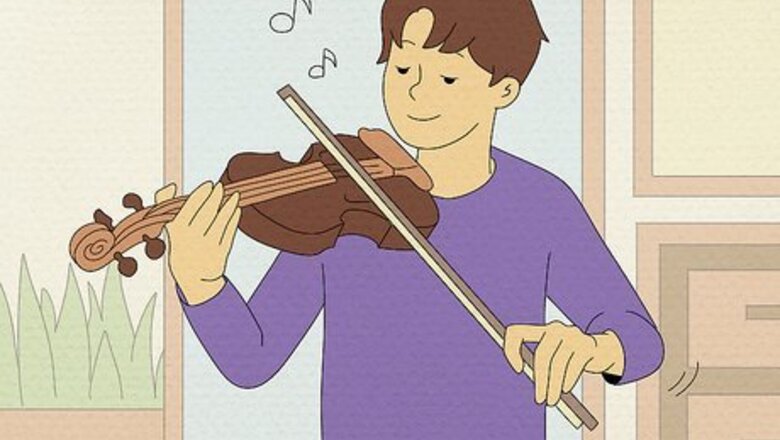
views
Dealing With Unpopularity
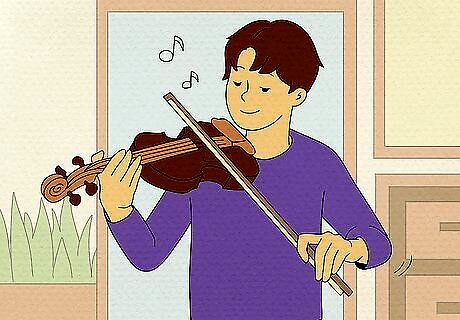
Find ways to quell loneliness. If you often feel lonely because of your unpopularity, try to find other things to do to fill your time and make you feel satisfied with your life. This will make you feel better about yourself and it will also make other people see that you do more than just sitting at home feeling sorry for yourself. Try focusing more of your energy on school or work. Being successful later will be a positive trait that people will find attractive even if you feel like people don’t appreciate you now. Immerse yourself in your hobbies. Learn a language, take an art class, practice an instrument – do anything that makes you feel more engaged with your own life.
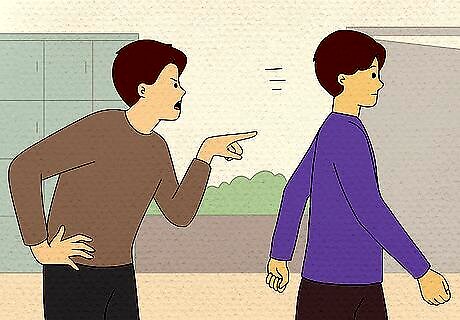
Don’t react negatively. If people are mean to you because they view you as unpopular, just ignore them. Giving them a big negative reaction will only add fuel to their fire. Instead, simply walk away if someone says something mean-spirited to you. Then you won’t have anything to regret later, but they will. If you feel like you are being bullied at school or work, you should notify someone about the situation (like your employer or your guidance counselor). When someone bullies you, try interrupting them. Bullies count on you to react politely and timidly. Try saying something like, “Excuse me. I need to go to the bathroom.”

Seek guidance in the form of other misunderstood characters. Holden Caulfield (the main character in J. D. Salinger’s Catcher in the Rye) rejected “phonies” and accepted them for who they really are: a fabricated exaggeration of a weak personality. Look beneath the surface and realize nothing and no one is perfect; popularity is simply an act of narcissism. You might also think about Harry Potter and consider reading the series of books about him by J. K. Rowling. Harry Potter starts off as a nerdy outcast who isn’t loved even by his own extended family/caregivers. But he turns out to be a very important and powerful wizard who is loved by many – specifically for his uniqueness. Another good book to read is Charlotte Brontë’s Jane Eyre. The title character is repeatedly viewed as a social outcast and never seems to fit in. However, at the end being true to herself gets her everything that she wanted in life.
Finding Friends in Your Niche
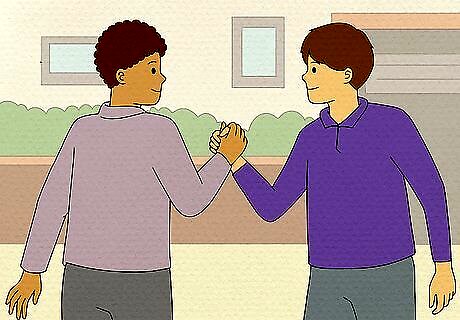
Choose friends who like you. Even if you feel like you are unpopular, that doesn’t mean you can’t have meaningful friendships with people who care about you. Spend your time with other people who aren’t obsessed with being popular and create your own tight-knit circle. People are drawn to others who exhibit positive traits. If you internalize the fact that you are a likeable person, other people around you will sense this and feel the same about you.
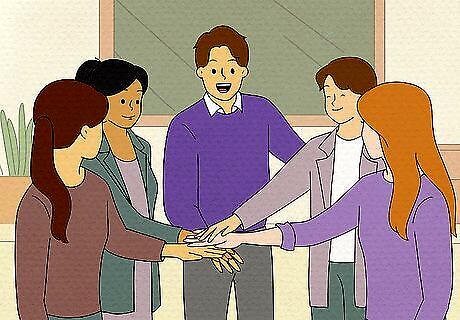
Pick friends with similar interests. Unpopular kids need friends too. And it is totally possible for you to make friends with people who like you, no matter what your social status is. You just need to look in the right place. Try joining an interest-based extracurricular activity where you can meet people who are into the same things as you. If you are interested in theater or performance, try joining the theater group at school or auditioning for a local play in your community. Try joining your school’s Speech and Debate team or a sports team. These are great ways to meet other people who share your interests.
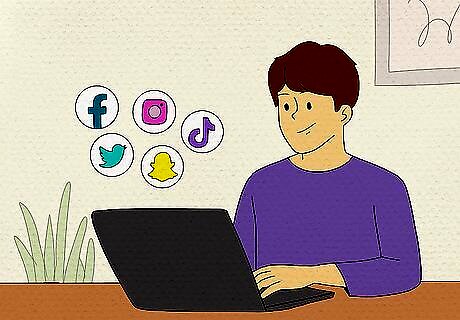
Use social media to your advantage. In today’s technology-driven society, it is easier than ever to find people who like the same things you like, no matter how obscure or non-mainstream that thing might be. Try finding online communities that are centered around something that matters to you. This might be a video game or a particular musician. Or it might be based on some kind of lifestyle choice or an activist belief. These online relationships might even develop into real life relationships eventually. While some might argue that only having friends online is a problematic situation, if you are happy with this you shouldn’t give any thought to what others have to say. What matters is that you are satisfied with your life. However, if being online or only having online friends makes you sad, you should consider changing this for yourself. Perhaps you’re drawn to online friendships because of some social phobia? If so, try seeking treatment from a psychologist. If being online makes you sad, try to limit the amount of time you spend online each day and find ways to engage with other people in your real life.
Being Confident About Who You Are
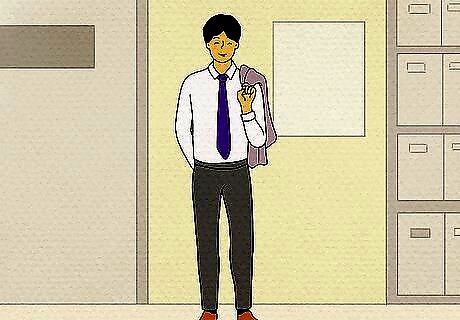
Embrace yourself. Many unpopular people may deal with shyness and inhibition. Some say this lack of social skills is a defect, but it can also be a hidden advantage. This can mean a person is more sensitive and insightful in developing a more refined nature. This surely is better than being nosey and invasive. To embrace yourself, you should allow yourself to continue doing the things you enjoy. Don’t quit a hobby just because others might think it’s “nerdy.” If you want to wear a tie to school every day or dye your hair purple, don’t stop yourself because you are afraid of what others will say to you about it. Standing up to peer pressure can be difficult, but having confidence in yourself can make it easier. It’s important to know your own strengths, abilities and successes, so that you can remind yourself you are doing the right thing.

Focus on what makes you happy. Forget about whatever popular fads are happening at the time and focus on doing what you like – even if your hobbies are part of what make you unpopular. Finding something that truly satisfies you is more rewarding than chasing after shallow enjoyments. If you enjoy mathematics, own it! Go to a math camp over the summer even if it means people will call you a nerd. One day, those math skills might help you get a great job.
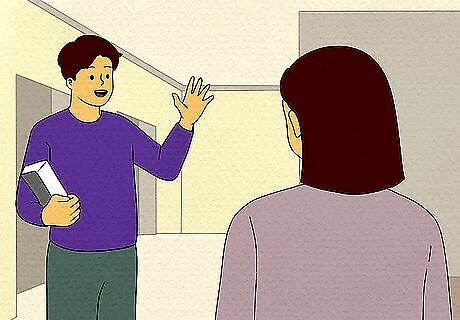
Show kindness to others. A confident person knows that they don’t have to put others down to feel good about themselves. If you are mean to others, then you are just trying to make other people feel as unpopular as you feel. Rise above this kind of behavior and be nice to the people you encounter.
Understanding Popularity
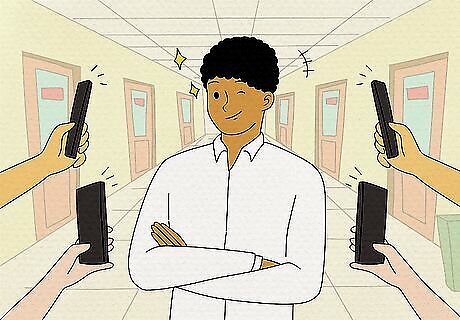
Recognize that popularity is fleeting. This is particularly true in school settings, especially in high school when popularity can seem so important. Assess what makes these popular kids so commonly liked. It's often due to physical or outward appearance that creates a universal appeal. Accept the superficial nature of this person's attraction and remember: beauty doesn't last forever. Outward beauty is not something people can count on forever. The skills that actually benefit you in life are those you have to work at cultivating – like intelligence and kindness. People who rely on their looks to get them by in life can seem shallow and are often less interesting than people who were once viewed as unpopular.
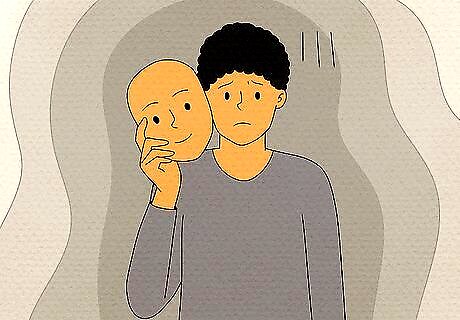
Realize that being popular often means conforming. Those popular people you know often attained their status because they decided to adhere to the group mentality of the existing popular crew. These people adopt each other’s opinions in order to fit in with the “in” crowd. This often means not being true to themselves.
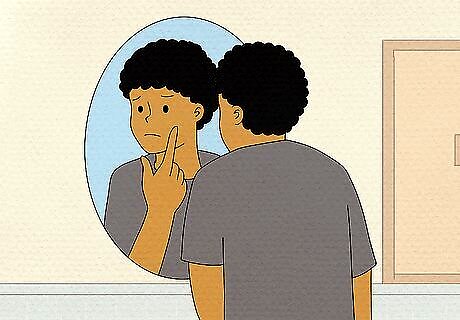
Understand that popular people have insecurities too. Many popular people also have insecurities and self-doubts, they are just better at camouflaging these feelings. Their outward appearance and attitude can disguise feelings of imperfection.
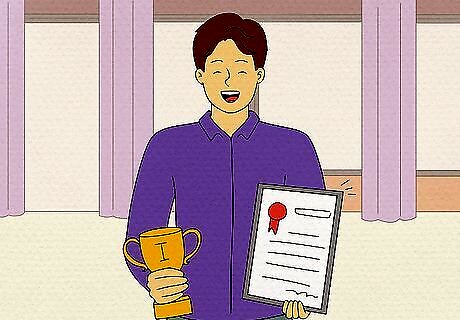
Recognize that unpopular people are often more successful in the future. While studies have shown that kids who exhibit good social skills in school often go on to be socially successful in the future, it is also true that many popular people can become distracted and overly occupied with popularity and achieving public recognition. They might mis-prioritize their lives, and could end up getting in with the wrong crowd or underachieving in school and business. Unpopular people are able to relate to a wider array of people and to develop a wider range of skills because they have been forced to work harder at adapting to their environment. Even if it is difficult being unpopular now, you will be more likely to be well-rounded and successful in a variety of situations later in life because of it. Also, remember what is popular isn't always good, and what is good isn't always popular.



















Comments
0 comment